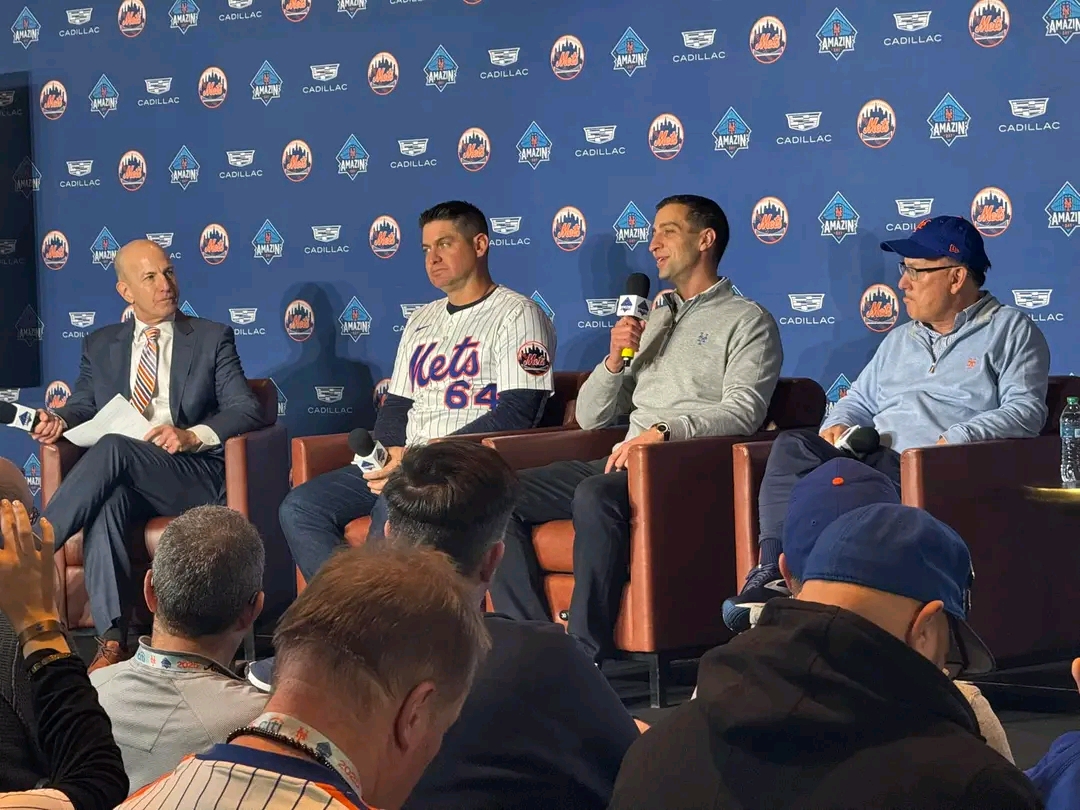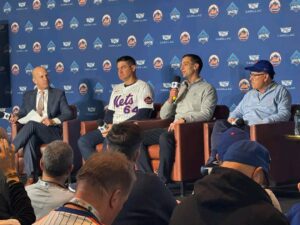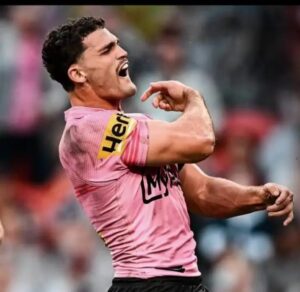
Mets Owner Steve Cohen Sends Strong Message to Scott Boras: Alonso’s Future Uncertain Amidst Stalled Contract Talks

In a candid discussion during the recent Amazin’ Day panel, New York Mets owner Steve Cohen addressed the delicate situation surrounding star first baseman Pete Alonso’s contract negotiations. Cohen’s remarks provide a revealing glimpse into the complexities of player negotiations in Major League Baseball, especially as the Mets position themselves in a rapidly changing landscape. The underlying message? Cohen is not one to be trifled with, especially when it comes to maintaining a balanced and competitive team.
The Asymmetry of Contract Negotiations
Cohen’s comments were layered with both candidness and strategic foresight. He expressed clear frustrations with the “highly asymmetric” proposals that have been presented to the Mets regarding Alonso’s future. The underlying sentiment suggests that Cohen is wary of a negotiation structure that might leave the Mets at a disadvantage, particularly in terms of financial commitments and long-term implications. While he remained open to possibilities, the tone of his message signals that the current terms being discussed are not satisfactory.
It’s no secret that Scott Boras, Alonso’s agent, is known for his aggressive negotiating style and ability to secure lucrative deals for his clients. In previous contracts, Boras has succeeded in maximizing player earnings, often pushing teams to invest heavily in their star athletes. Cohen’s assertion that he does not appreciate the structures “being presented to us” illustrates that he recognizes the nuances of Boras’s approach while intent on establishing a fair negotiation process.
The Financial Landscape of the Mets
Cohen, one of baseball’s wealthiest owners, has not been shy about spending since acquiring the Mets. He has transformed the team, making substantial investments in both player talent and infrastructure. However, this commitment to building a winning franchise comes with its own set of challenges. With several high-profile players already commanding significant salaries, Cohen faces the prospect of fitting Alonso into an already expensive roster.
The reality of modern baseball economics is stark. Top players now command contracts worth hundreds of millions, creating a competitive pressure that can lead to difficult decisions for team executives. Balancing a roster filled with high-priced talent while ensuring room to negotiate with other stars is no small feat. Cohen’s remarks hint that, as the Mets continue stacking their roster with talent, the complexity of including Alonso becomes a more challenging equation, prompting him to adopt a more cautious approach.
A Message to Boras
By articulating his position on Alonso’s contract negotiations, Cohen appears to be sending a pointed message to Boras regarding the need for rational discourse. He is establishing the tone that while there is flexibility to revisit discussions, the existing framework is not acceptable. Cohen’s dedication to fairness suggests he values the potential for teamwork and collaboration, rather than allowing negotiations to devolve into contentious battles.
The Mets’ owner demonstrated his shrewdness, balancing his desire for a competitive team with the need for careful financial management. His approach stands in stark contrast to a purely emotion-driven negotiation style. Cohen’s wealth allows for an aggressive approach, but he recognizes the importance of maintaining a sustainable model that doesn’t jeopardize the long-term success of the franchise.
Moving Forward
Cohen’s comments also reflect a broader strategy for the Mets as they look to move forward with existing players while balancing future additions to the roster. His emphasis on adaptability signals that the organization must remain nimble in its approach—whether that means keeping Alonso or exploring tempting offers elsewhere. This flexibility is crucial in a league where the landscape can change dramatically year to year.
While Cohen insists on being “brutally honest,” he also highlights the importance of keeping options open. The statement serves as a reminder that in the world of professional sports, nothing is finalized until agreements are signed. Players, agents, and management must navigate a complex web of negotiations, talent assessments, and financial realities.
Conclusion
As the offseason progresses, the ambiguity surrounding Pete Alonso’s future with the Mets looms large. Steve Cohen’s remarks offer insight into the organization’s approach to negotiations and the broader financial strategy at play. By making it clear that he’s not willing to accept unfavorable terms, Cohen emphasizes his commitment to building a competitive roster while ensuring that any future agreements are fair and sustainable.
For Met fans, the next steps in Alonso’s negotiation will be closely monitored, weighing their hopes for retaining a key player against the realities of the modern-day baseball economy. And for Boras, Cohen’s quotes are a definitive signal to proceed with caution—because negotiating with one of baseball’s wealthiest owners requires finesse and a willingness to meet in the middle. As the story unfolds, it will surely captivate the attention of not only Mets fans but the entire baseball community.





